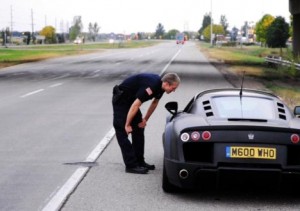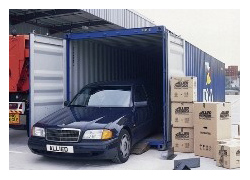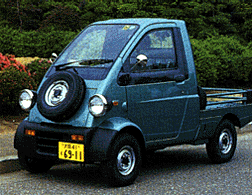Winnipeg Meetup Review
660s At the meet
I give it a resounding ok. Not a huge turnout, but given the circumstances.... we'll call it a 'win'.
For those who don't know, meeting at the Pony Corral is a Winnipeg tradition, but it's better known for the 60s and 70s muscle cars. So, some rhd-ers where a little intimidated (though most of them have more horsepower).
Also, last weekend the VIU, or Vehicle Inspection Unit, was cracking down on non-compliant gear on cars, especially ones that are... unusual (heavily modded, or an RHD). So most RHD drivers were too afraid to leave the house!
I have a compliance post I'm working on... expect something along those lines in the future.
So, in hindsight, long weekend, not the best place and circumstances were all against me. The next one I'll plan will be somewhere else, and maybe on a Saturday!
Check out the gallery for some new snaps!
rob
What would you do?
We know that police officers tend to target right hand drives. Sometimes though, they don't know they just pulled over a right hand drive.... and go to the wrong side of the car.
One day I was thinking about what I would do if I was the cop on the wrong side of the car. I then realized that I have no pride. I'd make a joke saying, "Oh, it's one of those."
Turns out that most police officers have more pride than me though. I've heard from some people that some officers will not only go to the wrong window the first time, but if they go to their car and come back they'll STILL go to the wrong window. My message to these officers: Two wrongs do not make a right.
The police, unfortunately, do have a good case to pull over RHDs. Occasionally officers will pull over RHDs just to check out the car (had the same problem in my '74 Baja Bug), sometimes because the driver is being a moron (if your car has 300+ HP, it's hard not to... it's cool). Those points aside, compliance is a big thing. Even though your car is 15+ years old, it has to meet certain standards to be on the road. Safety checks (or your province's equivalent) will not always catch everything.
I don't want to launch into a big talk about compliance right now. Headlights, tail lights, side markers and seatbelts seem to be the hot-button topics. The Imported Vehicle Owners Association of Canada has a FANTASTIC forum that discusses issues such as this. If you're in doubt about it, and don't want to ask a cop about it... ask there. There is lots and lots of people that really know their stuff there.
Cheers!
rob
Image via http://www.wheels24.co.za/News/General_News/Carrera-GT-killing-M600-ready-20090623
Why are are all Right hand drives in Canada 15 years old or more?
"Is it legal to import Right hand drives into Canada?" "Is it legal to import Japanese cars into Canada?" "Why are all right hand drives in Canada old?"
This is a common question, and has a pretty simple answer. This is, of course, Canada specific. Provinces vary in the way they handle RHD vehicles (*cough cough* Quebec) but at a national level there is a single answer.
When vehicles get imported into Canada, you must go through the Registrar of Imported Vehicles (RIV), whose website is http://www.riv.ca/. The have certain criteria that must be met for a vehicle to be officially imported into Canada. This information can be viewed at their Vehicle Admissibility page. There you can see a list of vehicles that can be imported into Canada. If your car is on that list, you should have minimal problems. If it's not... you're trying to import a 'grey market vehicle'. (Hot tip: all RHDs are grey market vehicles).
Moving down that page, you'll see
Grey market vehicles (excluding buses) less than 15 years old from the date of manufacture and buses (including school buses) manufactured on or after January 1, 1971 are inadmissible for entry into Canada.
Alright. 15 years. That's our first indicator that we can import our RHD.... where did they pull this magical 15 years from?
Let's go to where our loophole resides. The Exemptions page.
Vehicles are exempt from the Registrar of Imported Vehicles (RIV) registration if they are imported under one of the following conditions:
- Vehicles older than 15 years
The vehicles (excluding buses) are 15 years old or more based on the date of manufacture, or are buses (including school buses) manufactured before January 1, 1971. The importer must be able to prove the age of the vehicle.
Yay! This paragraph is why we are allowed to import our RHD cars after they are 15 years old. They don't have to meet any standards, and are rubber-stamped into the country.
There is a drawback to this. This also means that your car may or may not meet safety standards for Canada (Kei trucks would never ever ever pass Canadian safety standards....). They're not designed for this environment, so you have to really watch what you're buying. I believe that all provinces require a 'safety' before the vehicle can be registered, so that's something, but buyer beware.
So, yes. It is legal to import Japanese cars into Canada.... you just have to be patient.
rob
Pro and Anti-Right Hand Drive talk in the same newspaper
I maybe can't even say newspaper, more than publication. Check it out. Two writers for the same paper have vastly different opinions in regards to right hand drive vehicles. Both the writers work for the Victoria Times Colonist, and both articles were published this month.
May 2nd, Peter Hamer presented his arguments to impose strict limits on right hand drive vehicles. He makes some good points, then undermines his own points saying that he's done it and it was fine. Very odd.
Michael Cane then seems to have a direct rebuttal. He addresses the points that Hamer makes, but the tone is unfortunately that of a sibling argument that just ends in 'Nah-uh!'.
I'm glad that right hand driving in Canada has become a topic of discussion in mainstream media. Sadly, this is quite often the outcome. Two people with vague, hand-wavy stats that proudly announce that 'they say' that something is or is not something. And newpapers wonder why people are going to the internet for their news.
rob
Update: And yet another! This one makes reference to another study they call 'recent' (yeah... recent in the last 10 years). Don't they have a conference table to decide what they think?
Quebec perminently bans Right Hand Drives
It's happened.
It's official.
The moratorium on right hand drives in Quebec has become permanent.
The post is here, or if you speak French.
This is clearly a blow to the Canadian right hand drive society. Current owners are grandfathered yet again, but no new cars will be allowed to be registered.
All we can do now is petition the Quebec government to overturn it, or Canadian government to overrule it.
rob
edit: updated links
Why do people buy Right hand drive cars?
There's no one answer to this question. I'll toss out my opinion on the matter and feel free to agree or disagree with me.
1. It was never sold in Canada. There a bunch of vehicles that fall under this category, and I'd say a large part of the Canadian right hand drive community falls under this category. Kei trucks and Kei cars, Skylines were only RHD until this last batch and other sports cars from Japan were never made in LHD format. There are a bunch of hot hatches under this category too, like the Nissan Pulsar GTiR... which is really neat.
People who travel will sometimes see these vehicles and fall in love with them, and bring them back. Other see them on TV, movie or the fanstastical internet and fall in love. Whatever the case is, they don't come any other way and people want to have them.
There is also the case that a certain model of the vehicle was never released in Canada. Canada has the Toyota 4Runner, the RHD equivalent is the Hilux Surf. But, the Hilux Surf is available in diesel, which is super cool. Personally, I'm scoping out a turbo diesel Hilux Surf because I'd like an SUV, but I don't want crappy gas mileage, so it'd be a good fit for me!
2. Low Mileage. You don't get this with cars in Canada. We have too much highway. Vehicles imported from Japan have hilariously low mileage and are in great shape for their age. It's expensive to drive in Japan, and the public transportation is very good, so cars live good lives. Oh. And no salt on the roads.
3.To be different. I don't have to explain this one. Here's a Daihatsu Midget for your viewing pleasure, and my point and case. Image source.
4. Prestige. There are some cars that are available in both right hand drive and left hand drive, but people still want the right hand drive versions. Cars I've seen like this include MR-2s, Supras, Camrys, RX-7s, 240sx/180sx, and Land Rovers. People in the category can fall partially into 'wanted something different', and that's fine. Even others say that they're 'more legitimate', which is true for both British and Japanese cars if you want to look at it that way.
In the case of late model RX-7s, there's very few around and it can sometimes be easier to find them in RHDs, so you've got prestige and availability. So, why not right? This can even fall under the 'not available here' if you manage to find a 3 rotor, but good luck finding parts for a rotary motor, no less a 3 rotor! The uniqueness has it's ups and downs. Like I've said a thousand times, "Don't be stupid" and "Do your homework", and you'll love your RHD (even more)!
rob
Right hand drive postal vehicles

Canadian RHD Postal Truck
I monitor right hand drive news via google alerts, and an interesting article keeps popping up. Apparently rural mail carriers don't have RHDs.... I see them all over the city (and they're really really cute, as you can see [source]). I can say, that only makes sense. Apparently postal carriers aren't allowed to get out of the vehicle to deliver the mail.... so..... yeah... RHD makes total sense for them. I know that the states uses RHD Jeeps for rural mail carriers (Postal Pete says so). I know that a 'postal carrier' is a good loophole to allow any year of RHD vehicle into the states. Now, they just need to justify Skylines and the like as postal vehicles and they're golden!
The reason this piques my attention is that Canadian right hand drivers can use this as an argument if/when Canada tries to take away our cars. If they state they're 'unsafe' our argument is that if they are unsafe for us, they are unsafe for their employees who use them on a daily basis. Hopefully we never have to use that, but, we've got to create arguments now in case the day ever comes.
rob


